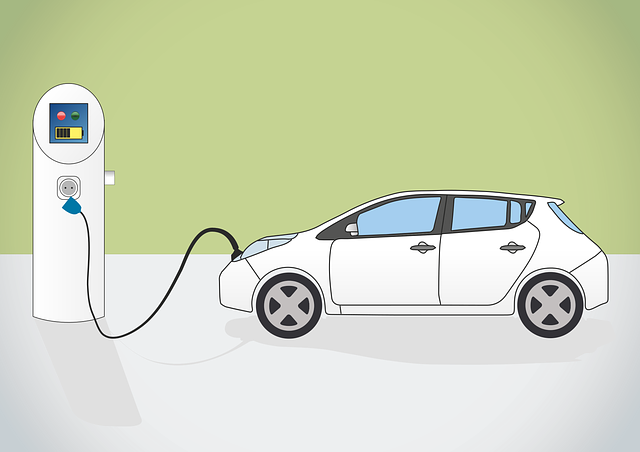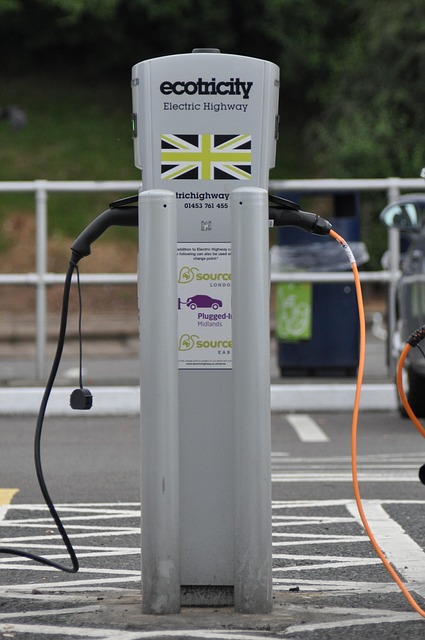The world is rapidly embracing Select Electric Vehicles (SEVs) as a crucial shift towards sustainable transportation, driven by environmental concerns and technological advancements. Governments globally are encouraging green energy in transport through initiatives like electric school bus programs. SEVs offer safer, more efficient, and versatile options for urban commuting to off-road adventures, with improved battery technology reducing range anxiety. Advancements include enhanced charging infrastructure, green incentives, quicker charging, and advanced driver assistance systems (ADAS). Norway leads the global shift, with over 70% of new car sales being electric in 2021, while cities like London and Paris integrate EVs into public transportation networks. These developments signal a more sustainable and cost-effective future for transportation.
Electric vehicles (EVs) are no longer a futuristic concept but a rapidly growing global trend. As the world shifts towards sustainable transportation, EVs are changing the auto industry dynamics. This article explores the rise of EVs, their transformative impact, and the myriad benefits they offer individuals and society at large. We delve into challenges and innovative solutions, present case studies from diverse regions, and highlight emerging EV technologies poised to redefine our future on the road, emphasizing the significance of adopting select electric vehicles.
- The Rise of Electric Vehicles: A Global Trend
- How EV Technology is Transforming the Auto Industry
- Benefits of Adopting Select Electric Vehicles for Individuals and Society
- Challenges and Overcoming Barriers to EV Adoption
- The Future of Sustainable Transportation: EV Innovations to Watch
- Case Studies: Successful Integration of Electric Vehicles in Different Regions
The Rise of Electric Vehicles: A Global Trend

The world is witnessing a significant shift as electric vehicles (EVs) rapidly gain popularity and become a prominent force in the global automotive landscape. This trend is not just a fleeting fad but a necessary evolution driven by environmental concerns, technological advancements, and a growing awareness of sustainable transportation. The rise of EVs is reshaping how we think about personal mobility, public transit, and even industrial logistics and shipping options.
Governments worldwide are promoting the adoption of green energy in various sectors, including transportation, as a key strategy to combat climate change. Electric school bus programs, for instance, are gaining traction, offering safer and more environmentally friendly alternatives to traditional diesel-powered buses. With advancements in battery technology, EVs are becoming more efficient, powerful, and versatile, catering to diverse needs—from urban commuting to off-road adventures, with the best EV models designed for such purposes now available in the market. This global trend signals a significant step towards a sustainable future.
How EV Technology is Transforming the Auto Industry

The rise of Select Electric Vehicles (SEVs) is undeniably transforming the auto industry. Traditional gasoline and diesel vehicles are slowly but surely being replaced by their electric counterparts, driven by a growing awareness of environmental issues and the need for sustainable mobility solutions. This shift isn’t just about reducing carbon emissions; it’s also about innovation and progress in technology. EVs offer improved performance, lower operating costs, and fewer moving parts, leading to reduced maintenance needs.
Moreover, the emergence of EV charging stations near me has addressed a significant barrier to adoption. The expanding network of charging infrastructure makes long-distance travel more feasible for electric car owners. Additionally, many automakers are now offering electric vehicle trade-in values that make upgrading or switching to SEVs financially attractive. As the technology continues to advance and gain mainstream acceptance, it’s clear that EVs are here to stay and will continue to reshape the auto industry in profound ways.
Benefits of Adopting Select Electric Vehicles for Individuals and Society

Adopting Select Electric Vehicles (SEVs) offers a myriad of benefits for both individuals and society at large. For personal users, SEVs represent a significant shift in transportation, promising reduced operational costs compared to traditional gasoline-powered cars. These vehicles are known for their efficient energy conversion, which translates to cheaper electricity bills over time. Furthermore, the low maintenance requirements of electric motors can save owners substantial amounts of money on regular servicing and repairs.
On a societal level, the transition to Select Electric Vehicles plays a pivotal role in combating climate change by reducing greenhouse gas emissions. Popular electric vehicle makes and models are increasingly designed with eco-friendly materials and advanced green energy logistics and shipping options, ensuring that their entire lifecycle contributes to sustainability. As more people opt for SEVs, we can expect a decrease in air pollution, particularly in urban areas, leading to healthier living environments. This shift also encourages the development of robust charging infrastructure, fostering innovation and enhancing accessibility for long distance electric car recommendations.
Challenges and Overcoming Barriers to EV Adoption

The transition to electric vehicles (EVs) is gaining momentum, but it’s not without its challenges. One significant barrier to EV adoption is range anxiety—the fear that the vehicle won’t have enough power to complete a journey. However, advancements in battery technology and infrastructure development are addressing this concern. Increasing charging stations along major routes provide peace of mind for drivers, eliminating the worry about running out of charge during long-distance travel.
Furthermore, educating consumers about the benefits of EVs is crucial. Many beginners may be overwhelmed by the initial cost or unfamiliarity with the technology. A comprehensive EV buying guide can demystify the process, highlighting not just performance but also the environmental advantages. With growing awareness and a wider range of eco-friendly alternatives to gas-powered vehicles, long-distance electric car recommendations are becoming more popular, proving that EVs are not just for urban commutes but can efficiently handle various driving needs while reducing our carbon footprint.
The Future of Sustainable Transportation: EV Innovations to Watch

The future of sustainable transportation is bright, led by innovative advancements in electric vehicles (EVs). As technology continues to evolve, we can expect several game-changing developments that will make EVs even more accessible and appealing to consumers. One area to watch is the improvement of green vehicle incentives and rebates, making these vehicles more affordable and encouraging wider adoption. Additionally, advancements in battery technology promise longer ranges and faster charging times, addressing common range anxiety concerns.
Electric cars with advanced driver assistance systems (ADAS) are another trend to keep an eye on. These features enhance safety and provide a more comfortable driving experience. From autonomous emergency braking to lane-keeping assist, these technologies are making EVs safer and more confident on the road. Moreover, the rise of electric car trade-in values is creating a more sustainable and cost-effective cycle for consumers, encouraging them to upgrade while minimizing environmental impact.
Case Studies: Successful Integration of Electric Vehicles in Different Regions

The successful integration of electric vehicles (EVs) has been evident across various regions, showcasing their potential to transform transportation landscapes. One notable example is Norway, where EVs have gained immense popularity, driven by favorable government policies and a strong infrastructure network supporting rapid charging. As a result, Norway leads global EV adoption rates, with over 70% of new car sales being electric in 2021. This shift has not only reduced the country’s carbon footprint but also stimulated economic growth through the development of a thriving EV industry.
Another successful case is the electrification of public transportation networks in cities like London and Paris. These urban areas have embraced EVs for buses, taxis, and even iconic landmarks like the London Black Cab, replacing traditional gasoline-powered vehicles. The introduction of electric cars with advanced driver assistance systems has enhanced safety and efficiency, while also contributing to cleaner air and reduced noise pollution. Additionally, many cities are offering incentives for EV owners, such as tax breaks and improved parking access, further encouraging the trade-in of older vehicles for greener alternatives.
Electric vehicles (EVs) are not just a passing trend but a revolution in motion, redefining the automotive landscape. As we’ve explored, the rise of EVs is driven by advanced technology and a growing awareness of environmental sustainability. The benefits for individuals and society are significant, promising cleaner air, reduced carbon footprints, and lower running costs with select electric vehicles. While challenges remain, ongoing innovations and successful global implementations highlight the future potential of sustainable transportation. By embracing these changes, we can foster a greener, more efficient world.
